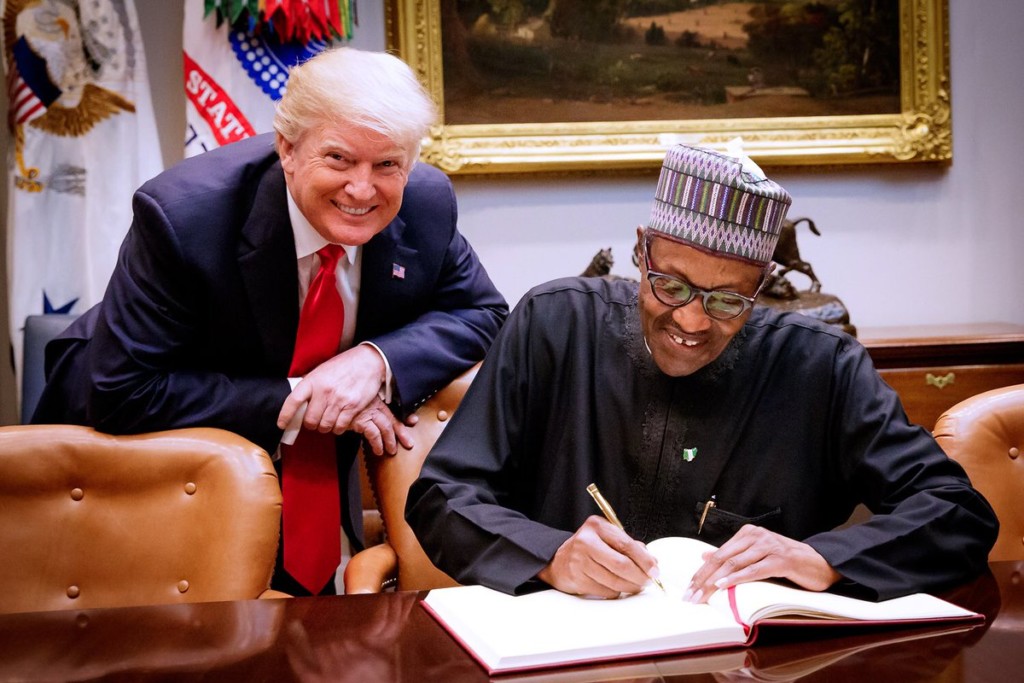EXPLAINER: What Trump’s New Travel Ban Actually Means For Nigerians
President Donald Trump, on Friday, extended the United States’ travel restriction to six more nations including Africa’s most populous nation, Nigeria.
Three other African countries – Eritrea, Sudan and Tanzania – as well as former Soviet state, Kyrgyzstan and Burma were added to the list, making a total of 13 countries that are now on the travel restriction list.
Advertisement
There have been misconceptions and anxiety over the new travel restriction which takes effect on February 22 as some Nigerians on social media have wondered what the restriction means and how it will affect those seeking entry into the U.S.
Some have wondered if the travel restriction would affect all categories of visas or just some categories of visa applicants.
The apprehension is partly predicated on the fact that the U.S. had also recently made a policy statement against all those seeking “birth tourism” which until now allowed pregnant women to secure U.S. citizenship for their children by giving birth in the country.
Who Are Those Affected?
Advertisement
A close look at the statement from the U.S. Department of Homeland Security (DHS) which announced the new travel restriction shows that the restriction applies only to applicants seeking immigrant visas into the U.S. In other words the restriction only targets those who want to go and live in America.
Announcing the new travel restriction, the Acting Secretary of the DHS, Chad F. Wolf, had said the U.S. made the move to “raise the bar for global security by requiring nations to meet the Department’s stronger security standards and by making it clear to countries what they must do to meet those standards.”
In essence, America’s “birth tourism” visa restriction is universal and will affect pregnant women from all countries who are seeking visa to go to the U.S. to have children.
On the other hand, America will only deny visa to immigrants from the thirteen countries on its travel restriction list.
This implies that nonimmigrants like students and certain temporary workers, as well as potential employees with specialized skills, will not be affected by the ban.
Advertisement
The U.S. also said travelers who have already been issued visas by the U.S. government will not be affected by the new restrictions.
Immigrant Visa Waiver
The U.S. has made provision of waivers for immigrant visas.
Immigrants will be able to apply for waivers from the restrictions if denying them visa may subject them to undue hardship in their country.
Acting Secretary Wolf had said the recent move was taken against the governments of the six countries that failed to corporate with the U.S. on some security measures which include information-sharing on terrorism or lack of updated passport systems.
“The top responsibility of the President and the Department of Homeland Security is the safety and security of the American people, and these new vetting criteria accomplish that goal and are raising the bar for global security.
Advertisement
“It is logical and essential to thoroughly screen and vet everyone seeking to travel or immigrate to the United States. However, there are some countries from whom the U.S. does not receive the necessary information about its travelers and, as a result, pose a national security or public safety risk that warrants tailored travel restrictions,” said Wolf.
He added that the move was part of the DHS security standards aimed at “enhanced screening and vetting capabilities, that allow us to better identify terrorists and criminals attempting to enter the United States,” adding that “These screening and vetting capabilities are most effective when foreign governments contribute to our ability to verify a traveler’s identity and assess whether they pose a national security or public safety risk. For a small number of countries that lack either the will or the capability to adhere to these criteria, certain travel restrictions have become necessary to mitigate potential threats. The new, additional restrictions are not blanket restrictions. These tailored restrictions will make the U.S. safer and more secure. And countries that make the necessary improvements will have their restrictions removed accordingly, as was done in 2018.”
According to the DHS, the restrictions may be removed if governments of the affected countries meet some expectations of the U.S. The DHS also warned that the U.S. government may impose additional sanctions on the countries if improvements are not made.
What Is Nigeria Doing?
President Muhammadu Buhari, on Saturday, said in a statement by his senior special assistant on media and publicity, Femi Adesina, that he has directed the constitution of a committee that will “study and address the updated the U.S. requirements.”
Adesina said the committee which will be chaired by the Minister of Interior, will “work with the U.S. Government, INTERPOL, and other stakeholders to ensure all updates are properly implemented.”



